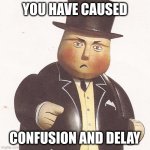Bodington
Virgin
- Joined
- Oct 21, 2009
- Posts
- 139
Suppose you write what you consider to be a funny anecdote or observation made by a character. Should you include an assertion that the listener(s) laughed just to alert the reader you consider what you wrote is humorous. I ask this because I'm cognizant that what one considers is humorous another person does not. Case in point: In my latest story a character asks what is a gold star lesbian. The answer by the other character is: " “A gold star lesbian is a lesbian who hasn’t ever fucked a man, nor does she ever intend to. I suppose an exception could be made for a lesbian, who happens to be in the company of a man and succumbs to the persistent and relentless demands that they have sex; his successful persuasive line being ‘you might as well take the opportunity of engaging in straight sex, if only to experience it for once and for all. If the lesbian, thus finds the subsequent sex distasteful and not enjoyable and swears off men absolutely, I imagine she is entitled to retain the status of a gold star lesbian.”
